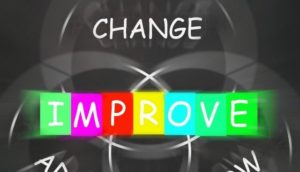“It’s just easier if I do it myself”
“Nobody does it better than me”
“It will take me longer to explain”
Has the above thought process ever crossed your mind or been your reasoning for completing a task that someone else could/should be doing? If so, you’re not alone, but you have to learn to fight against such reasoning. With all the challenges of time management, multiple priorities and the need to be more efficient, it is critical to effectively coach your team members to be more productive.
Challenges and Benefits of Coaching
Does it take time to be a good coach? Absolutely! But consider the fact that most direct reports will spend a vast majority of their time working on their own without guidance. They need to know how to solve problems and produce results on their own. Coaching is a skill that can be developed with great dividends for those who practice it successfully. It helps all parties involved… the coachee, the coach and the larger organization. Consider that supervisors who are better coaches will impact the organization by the magnitude of the number of direct reports they have. In other words, one good coaching manager can impact their entire team.
Different Types of Coaching
In a study published in Forbes Magazine, training alone improved leadership skills by 22%. When combined with Executive Coaching, improvement jumps to 77%.”. Could you and your company benefit from that type of improvement in leaderships skills? Executive coaching entails helping the leader work through issues and challenges that are limiting their impact on their organization and on their professional growth. Some topics that are covered include developing a vision and a winning culture, strategic thinking, personnel issues and career development. An executive coach can also help with issues like time management, communication effectiveness and being held accountable to your commitments to personal and professional growth.
Subordinate Coaching
Subordinate Coaching takes place between a supervisor and their direct report and often has the most impact on overall performance. It’s about uncovering the need, agreeing on a solution and working together to make it happen. One of the toughest parts of coaching is observing without interfering, but it’s critical to do so. And if they fail at what they’re doing then, with the coaches help, they’ll learn. Of course, you don’t want to see anyone crash and burn or negatively impact the business, but if you continually jump in to “save the day” and don’t allow people to do it on their own, they won’t learn, grow or become more confident and independent.
Being a good coach will save you time.
The more someone is coached to improved performance, the less the coach (aka supervisor) has to be involved in making sure the work is done correctly. So, stop thinking that you’re the only one who can get the job done in the best, most efficient way. Coaching at all levels of an organization will lead to a more efficient and productive workforce.
Ken Sher is President of Sher Coaching and he is dedicated to improving individual and team performance by focusing on Executive Coaching, Leadership Development and Career Management. If you would like to reach out to Ken to schedule a complimentary coaching session, please call him at (215) 262-0528 or email him at ken@shercoaching.com




